Über uns
Die Aufgabe dieses Gemeinsamen Kooperationsprogramms für angewandte wissenschaftliche Forschung (JCAR) besteht darin, die Zusammenarbeit im Bereich Hochwasser- und Dürremanagement und Forschung zu verbessern, um die grenzüberschreitende regionale Anpassung an Klimaextreme (ATRACE) zu beschleunigen.
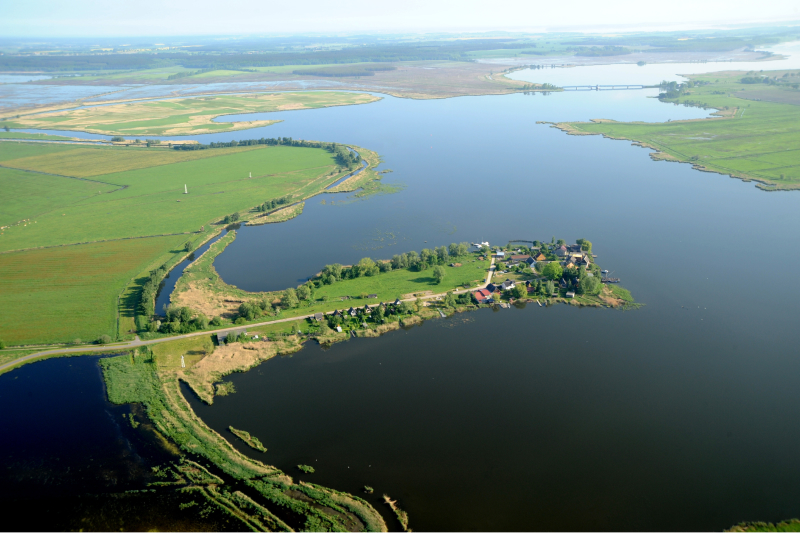
Die Initiatoren des Programms sind sich einig, dass der Klimawandel bereits Realität geworden ist. Die rechtzeitige Vorbereitung auf den Umgang mit Überschwemmungen und Dürren erfordert ein ständiges Zusammenwirken von Forschung, Politik und praktischer Umsetzung. Die Dringlichkeit erfordert eingebettete Forschungsansätze, die mit einer massiven Ausweitung der Klimamaßnahmen einhergehen.
Um das Handeln zu beschleunigen, zielt dieses Programm nicht auf die Entwicklung weiterer alternativer Instrumente und Maßnahmen ab, sondern auf die Verbesserung, Erweiterung und Integration bestehender Rahmenbedingungen, Konzepte, Modelle und Datensätze. Um anzuerkennen, dass die Vorbereitung auf Extremereignisse nicht das einzige Problem ist, richtet JCAR ATRACE seine Wissensentwicklung in enger Zusammenarbeit mit politischen Entscheidungsträgern und Praktikern in den Einzugsgebieten aus und berücksichtigt dabei die bestehenden Entwicklungspläne für die Flusseinzugsgebiete.
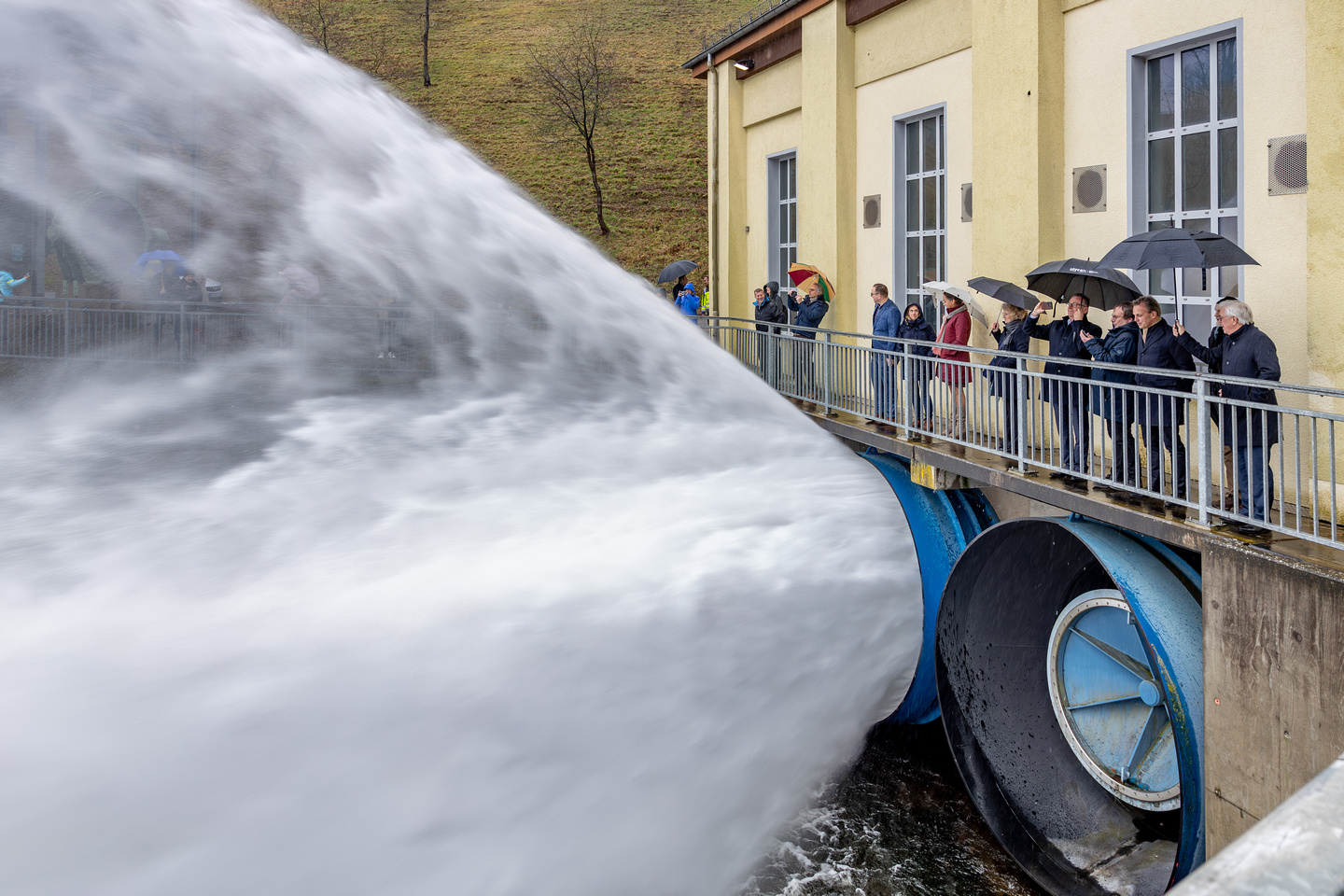
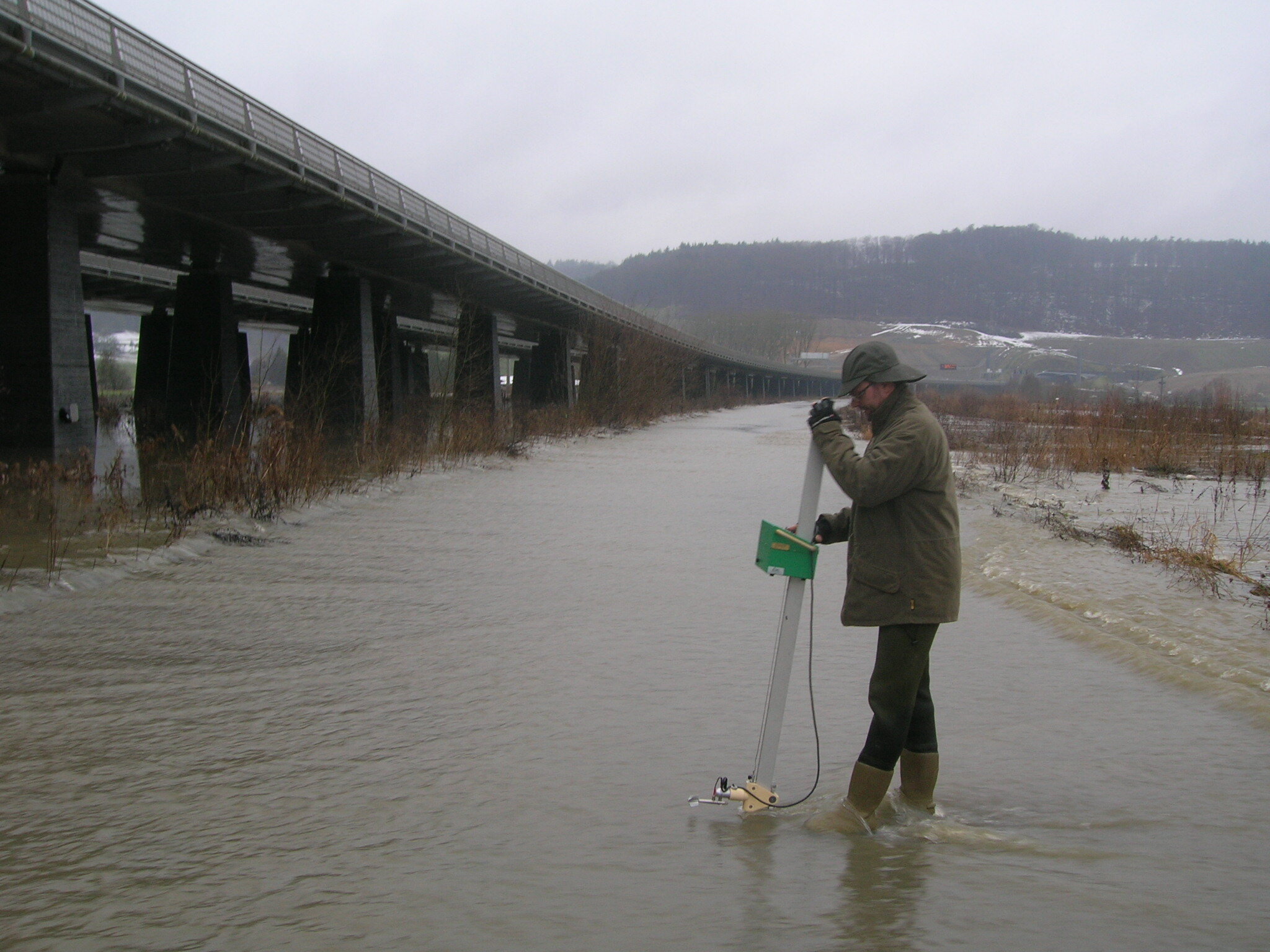
In-situ flow measurements during a flood event.
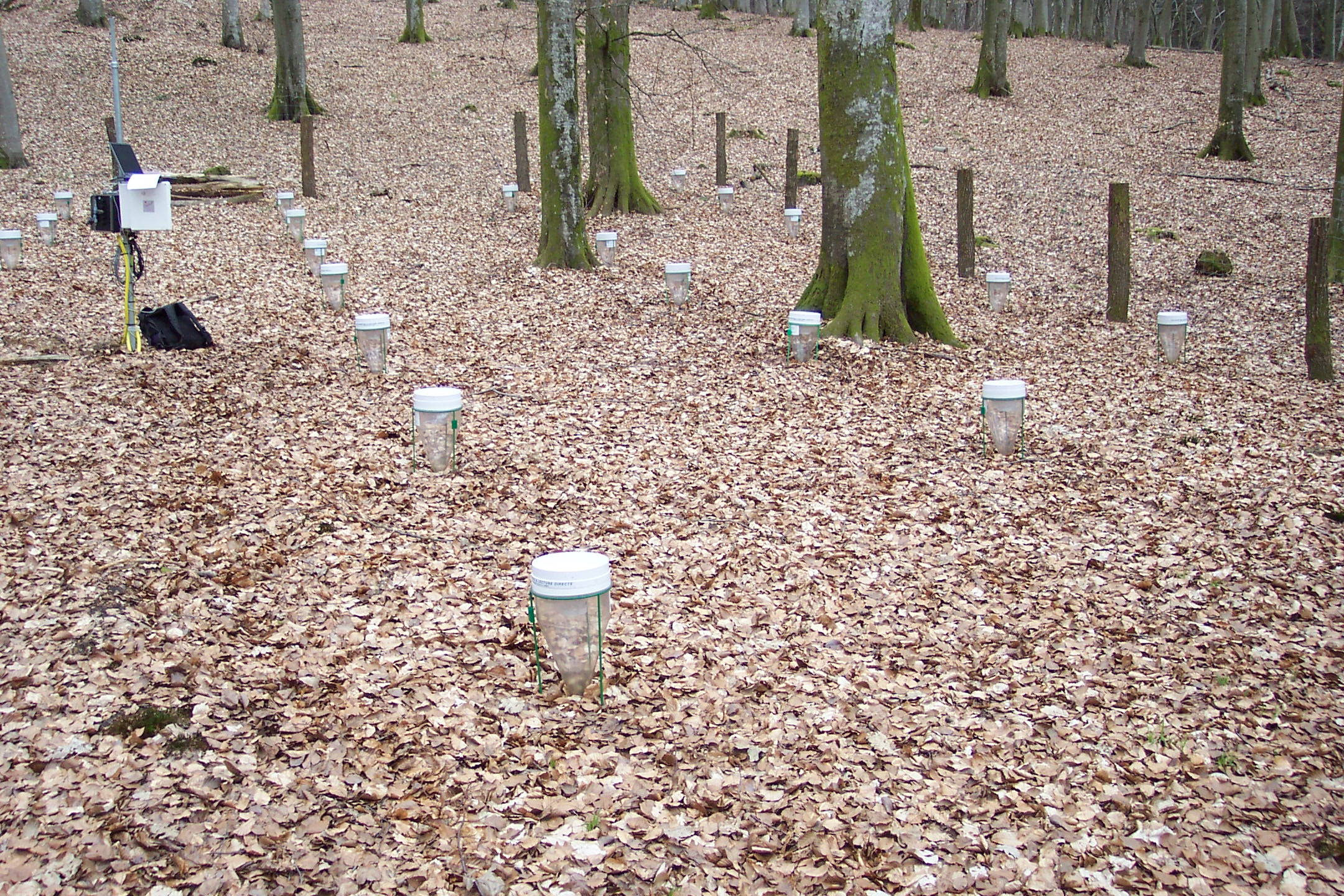
Experimental setup measuring rainfall throughfall in a forest.
Unsere Hauptziele
Die Hauptziele dieses gemeinsamen Kooperationsprogramms, das auf einer gründlichen Abstimmung mit unseren Forschungspartnern und einer Überprüfung der offiziellen Evaluierungen der Flutkatastrophe von 2021 beruht, sind:
Bessere Vorbereitung
Unterstützung der regionalen Regierungen in Belgien, Deutschland, Luxemburg und den Niederlanden bei der Verbesserung der integrierten Planung, Entwicklung und Verwaltung von Flusseinzugsgebieten zur Vorbereitung auf extreme Klimaereignisse.
Grenzüberschreitende
Zusammenarbeit Förderung langfristiger Partnerschaften zwischen europäischen Forschungseinrichtungen, um die Wissensbasis zu verbessern und Informationen über Hochwasser- und Dürrestrategien in grenzüberschreitenden regionalen Flusseinzugsgebieten zu erhalten.

project manager of JCAR ATRACE
Kymo Slager
Dr. Ir. Kymo Slager is Programme Manager of JCAR ATRACE, and an expert in the field of flood risk management. As such Kymo has been involved in several (inter-)national flood risk projects, with focus on countries Netherlands and Bangladesh. In the Netherlands, he advises the competent authorities for the cyclic national implementation of the European Flood Directive for more then 10 years, now. In the past, he played a major role in providing the analytical base for the Dutch national Delta programme on flood risk standards and lead the update of the Dutch national flood impact assessment tool. More recently, he co-led the scientific Dutch Task Force Fact Finding Floods 2021 and provided key support on the assessment of the Dutch Task Force Flooding after the floods of 2021.
chair of the Scientific Programme Council of JCAR ATRACE
Jaap Kwadijk
Prof.dr.Jaap Kwadijk is the chair of the Scientific Programme Council of JCAR ATRACE, and leading scientist in the field of climate change, hydrology, water and flood management. Jaap has been director of Science and chairman of the Scientific Council of Deltares, for the past 10 years. In addition, he is part‑time Professor modelling water management and climate at Twente University. During his career, Jaap has published many high appreciated scientific papers on his work in international river basins (e.g. Rhine, Nile, Meuse), and is seen as one of the groundfathers of the development of the world reknown Delft‑FEWS software and the approach on ‘tipping points’ for climate adaptation. Jaap participates in several scientific boards on water resources issues, as expert reviewer for the European Commission and reviewed reports of WG II and WG III of the IPCC 4th Assessment.
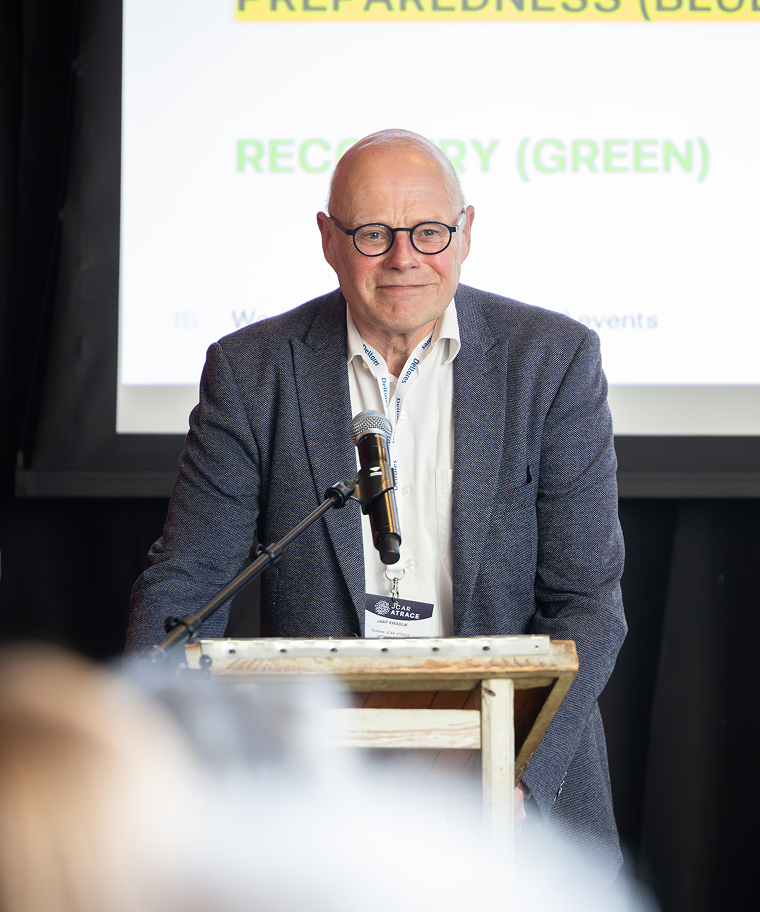
Assess cross-country differences and similarities in household flood adaptation and the effectiveness of such adaptation options.
Partner organizations involved
VU Amsterdam, Université de Liège, GFZ Potsdam
Regions covered by the study
Ahr-tal, Vesdre valley and Limburg
Scope & objectives
Following the 2021 European floods several independent data collection initiatives were undertaken in the affected regions of Belgium, Germany, and the Netherlands. The resulting object-level datasets contain valuable complementary information on hazard characteristics, vulnerability of exposed assets, and socio-economic factors which drive the adaptation capacity of the households and communities. So far, these datasets were analysed independently or in subsets; but no previous study aimed at extracting new scientific understanding from the fusion of all existing datasets. Such a holistic view offers the potential to strengthen the robustness and statistical significance of previous analyses, unveil new knowledge on flood damage mechanisms, reveal significant patterns between regions (in terms of hazard, vulnerability, damage, and coping capacity), and disclose possible bias resulting from data being collected at different periods and by different means (e.g., in-person vs. online surveys). It will also contribute to establish a common ground for subsequent analyses, such as upgrading flood damage models, assessment models to simulate the effect from adaptation and fine-tuning research questions to be addressed in the scope of the PhD research planned within JCAR-ATRACE (coupling of human-water systems, damage modelling …)
Approach
To cross compare surveys in NL, Ger and Be to assess cross-country differences and similarities in household flood adaptation and the effectiveness of such adaptation actions.
Actions/Tasks
- Systematic comparison and merging of the questionnaires used in the already conducted surveys;
- Match between variables collected in the various surveys to generate one harmonized dataset;
- Data exploration, descriptive statistics, and analysis (features extraction, regressions …) predominantly based on regression methods;
- Description of the main drivers of household flood adaptation in the three countries.
Outcomes/expected outcomes
Dissemination of the study results through a joint scientific paper
Next events/actions in the next 6 months
...
Thijs Endendijk
PhD student, VU Amsterdam
Europäische Forschungspartner
Die folgenden renommierten internationalen Forschungsinstitute arbeiten in diesem Programm zusammen:
More information
Learn more about the European Research Partners on our website
